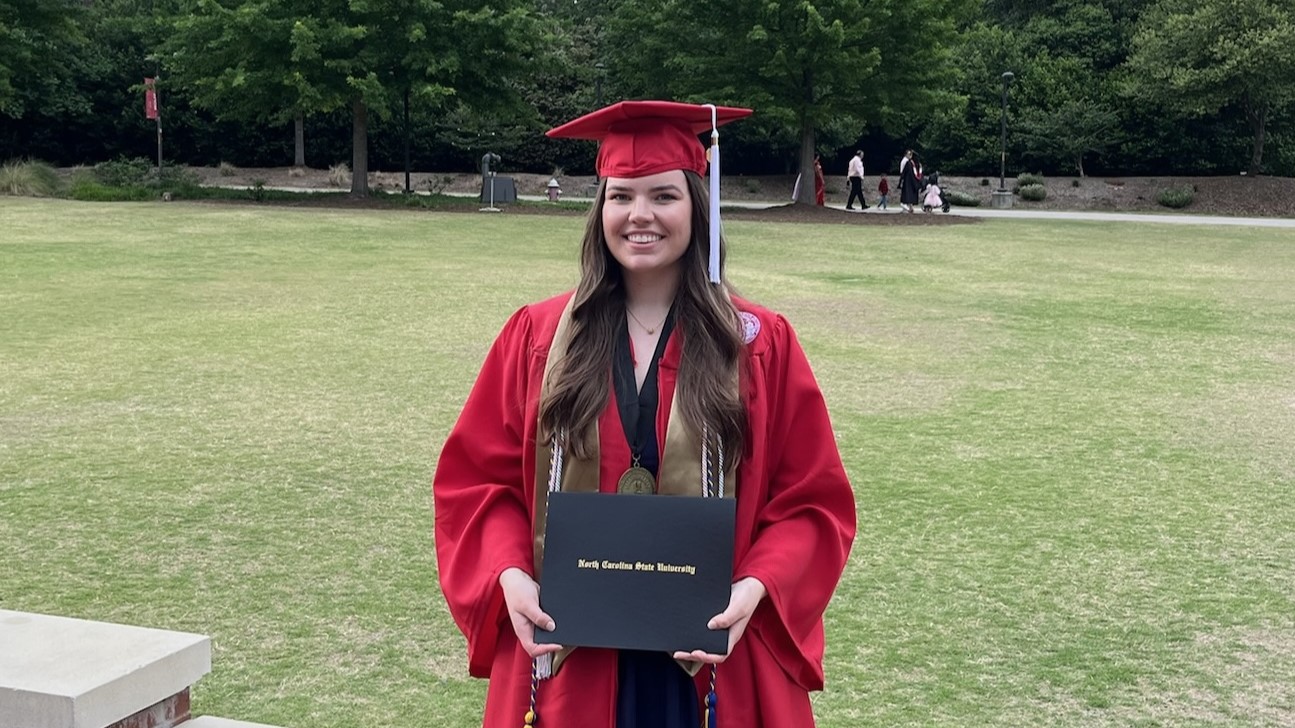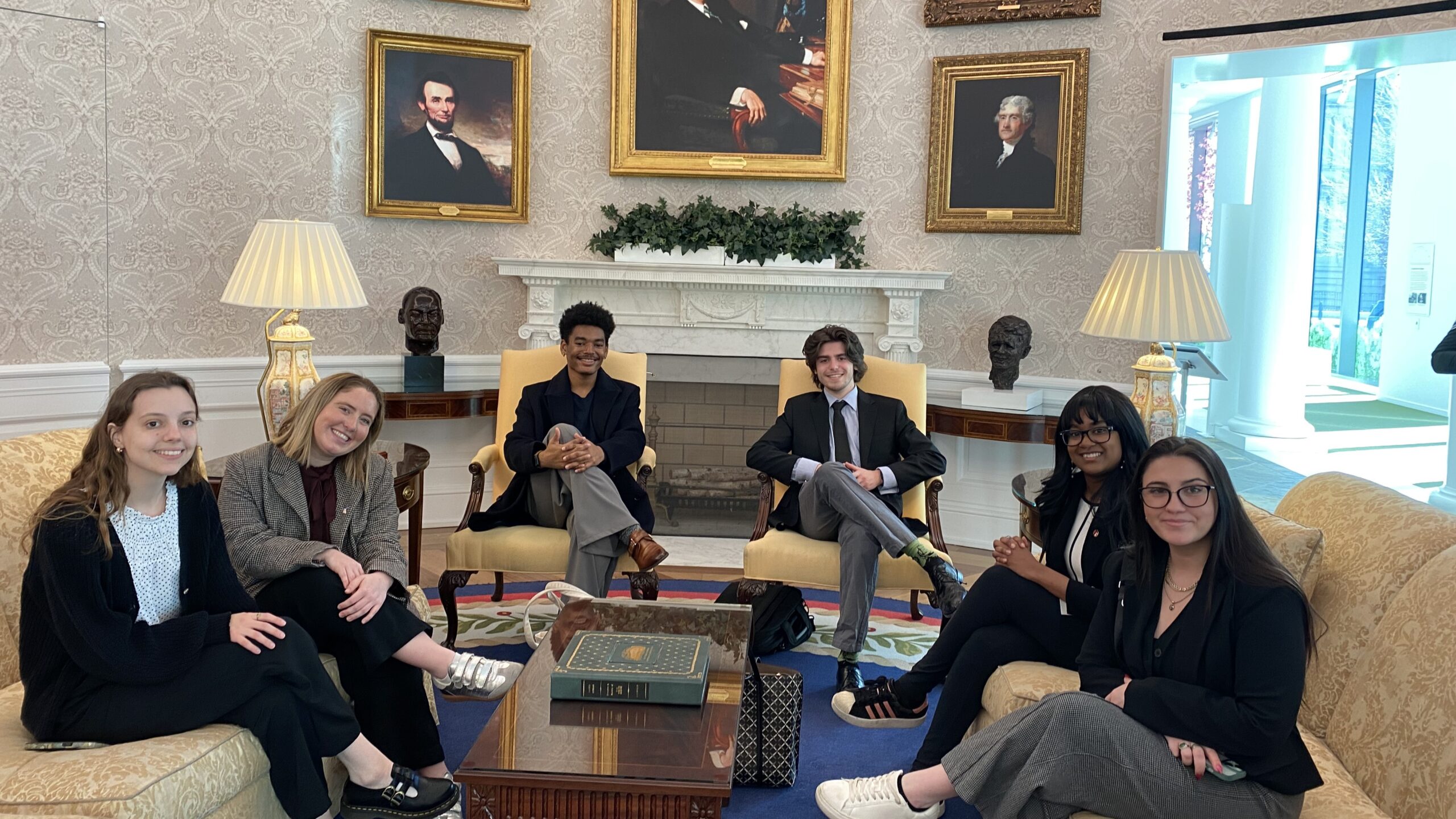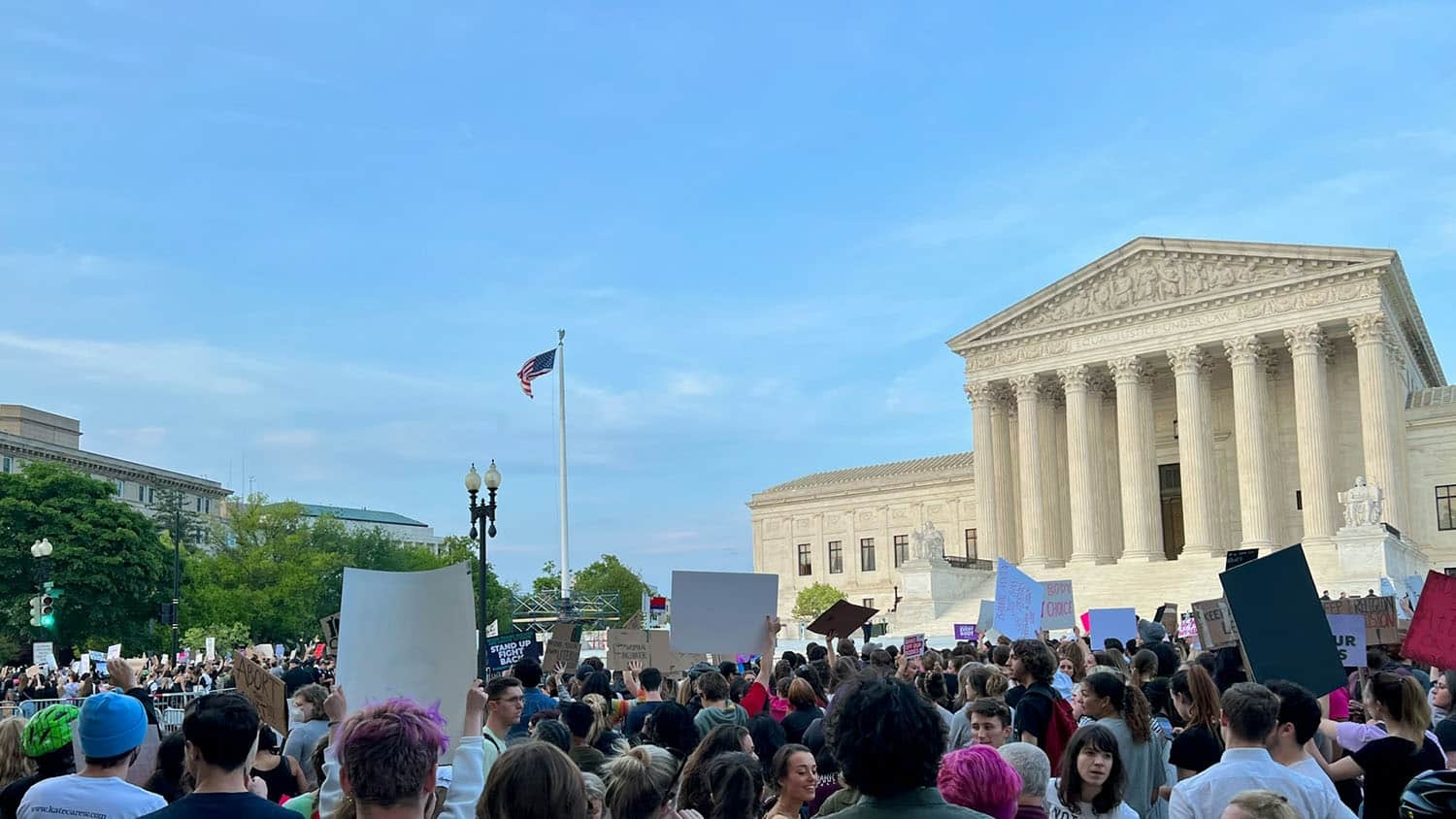Political Science Majors Shine at the Summer Undergraduate Research Symposium
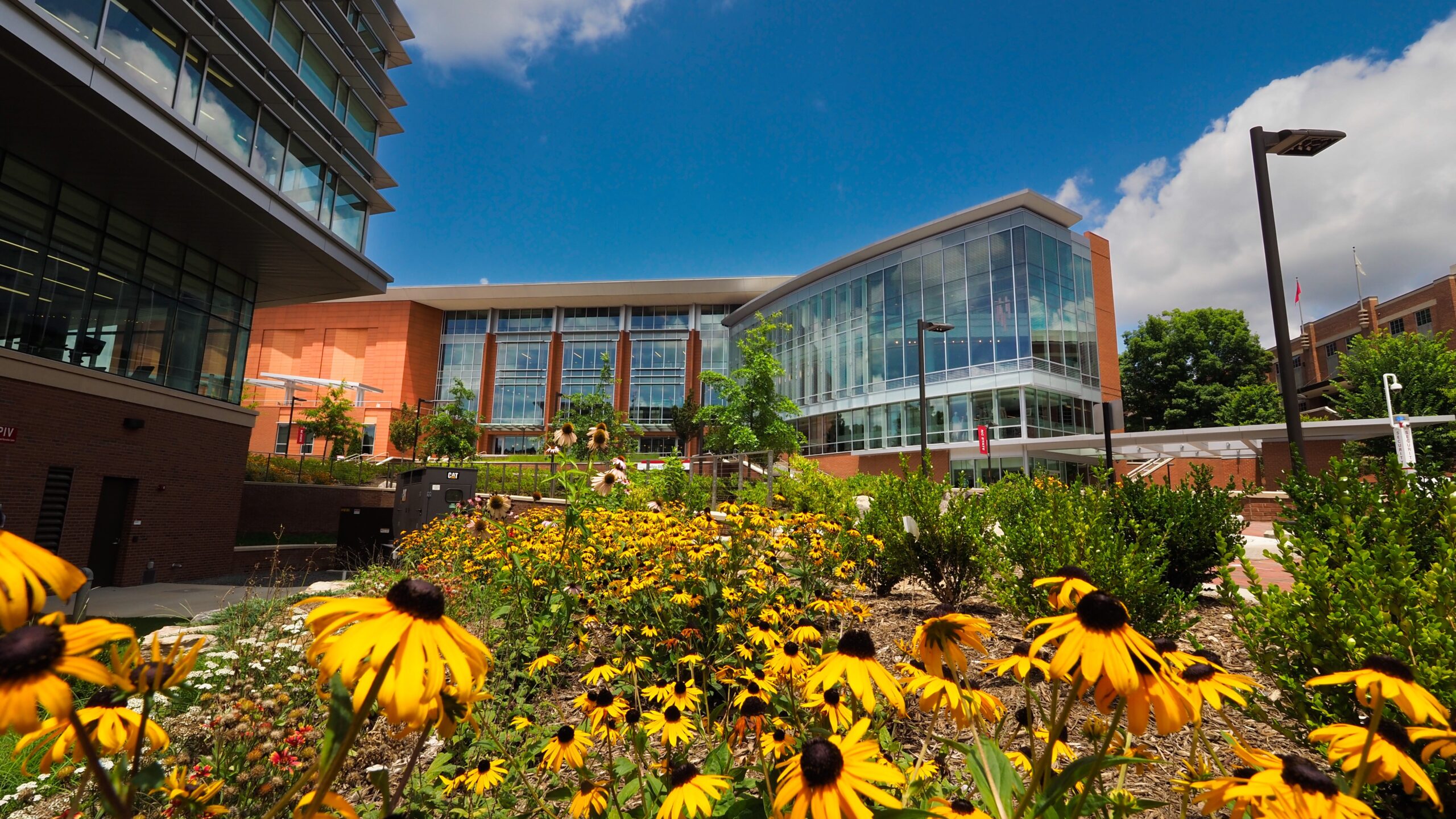
Political science majors Mya Lowry (‘23) and Aurian Bayat (‘23) presented the results of their undergraduate research projects at NC State’s Summer Symposium on July 27, 2022. Hosted by the Office of Undergraduate Research, the Summer Symposium is an annual two-day celebration of undergraduate research, creativity, and problem solving across many disciplines.
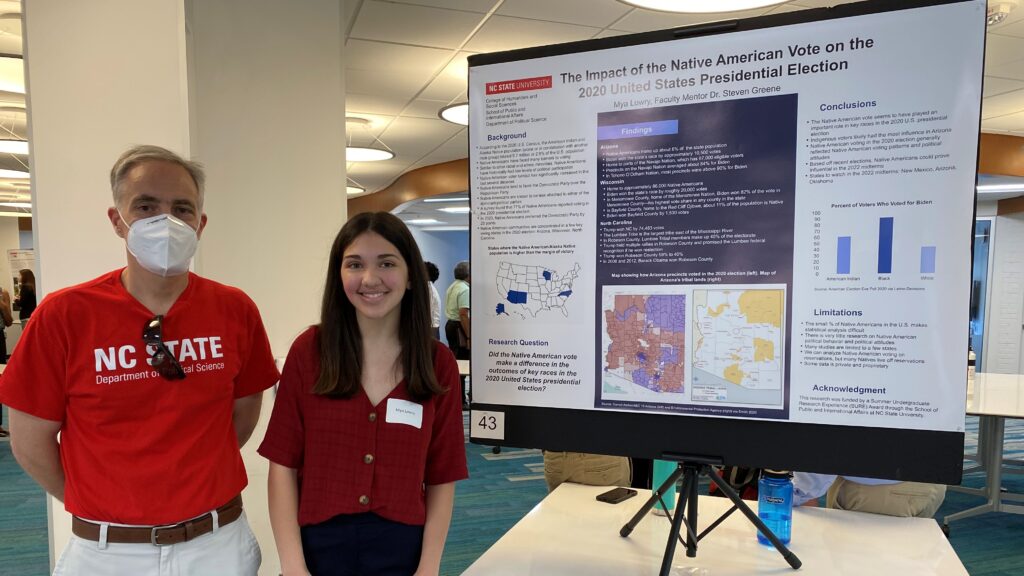
Lowry had been thinking about the role of the Native American voter in national elections for sometime before she decided to turn her questions into a summer research project. She worked with Professor Steven Greene on her project: The Impact of the Native American Vote on the 2020 United States Presidential Election.
In her abstract, Lowry explains: “Native American political behavior has historically been understudied in the discipline of political science, primarily because Native Americans only make up around two to three percent of the total United States population. Due to their small numbers, Native American electoral behavior and voting patterns have been difficult to analyze. Native American voters are frequently overlooked by the major political parties and the media. In surveys and exit polls, they are often excluded or grouped into the ‘other’ category. However, there is reason to suspect that Native American voters could have played an important role in the 2020 presidential election, especially in key battleground states like Arizona, Wisconsin, and North Carolina which all have sizable Native American populations. I explored data from existing research on historical Native American electoral behavior and voting patterns to tie my findings into the larger context of the 2020 presidential election.”
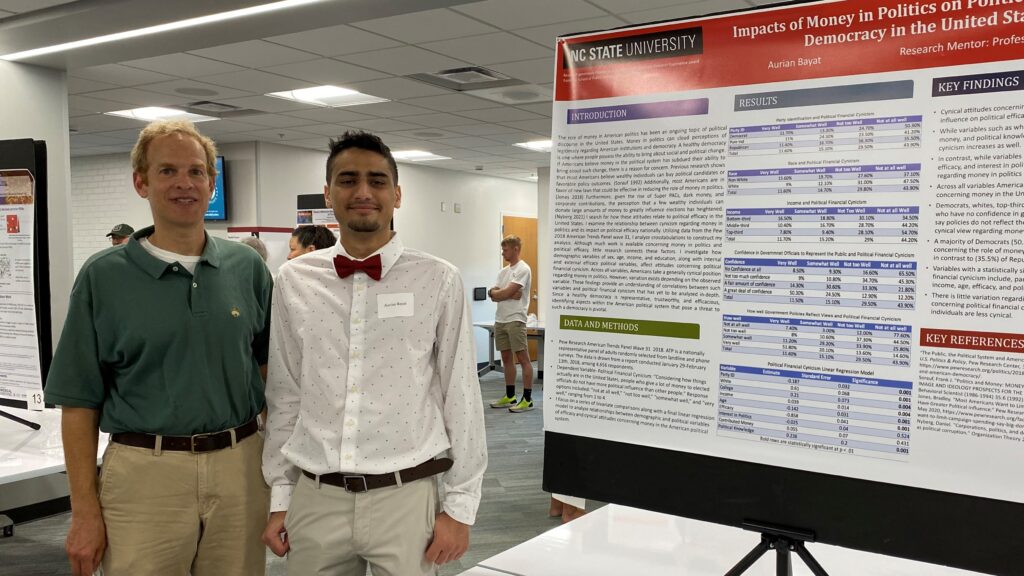
Bayat, who also worked with faculty mentor Professor Steven Greene, studied the impact money in politics has on political efficacy and democracy in the United States. In his abstract he writes: “The role of money in American politics has been an ongoing topic of political discourse in the United States. Money in politics can cloud perceptions of legitimacy regarding American institutions and democracy. A healthy democracy is one where people possess the ability to bring about social and political change. If Americans believe money in the political system has subdued their ability to bring about such change, there is a reason for concern. Given that previous research shows that most Americans believe wealthy individuals can buy political candidates or favorable policy outcomes, I searched for how these attitudes relate to political efficacy in the United States and examined the relationship between cynicism regarding money in politics and its impact on political efficacy nationally.”
When asked about his ambitions for the project, Bayat said, “I wanted to challenge myself to write about an area I had thoroughly researched and knew well. I plan to attend graduate school and knew the experience of a summer research project would help me develop the research, analysis and writing skills I need for advanced academic study.”
The Department of Political Science encourages students to conduct their own research projects as undergraduates. “One of the most rewarding aspects of being faculty here is the opportunity to work one-on-one with undergraduates on their own research. Students’ innate curiosity about the political world around us leads to lots of great research questions,” Professor Greene said. “And, with a little hands-on faculty guidance, the student can work to create a research project that helps us understand the political world better while also learning invaluable research skills.”
Lowry and Bayat’s research projects were funded through SPIA SURE — summer undergraduate research grants from NC State’s School of Public and International Affairs. “We are glad to be able to support undergraduate research through the SURE program. This is an excellent opportunity for students to enhance their skill sets and prepare themselves for graduate school,” said Irwin Morris, Executive Director of the School of Public and International Affairs.
- Categories:
